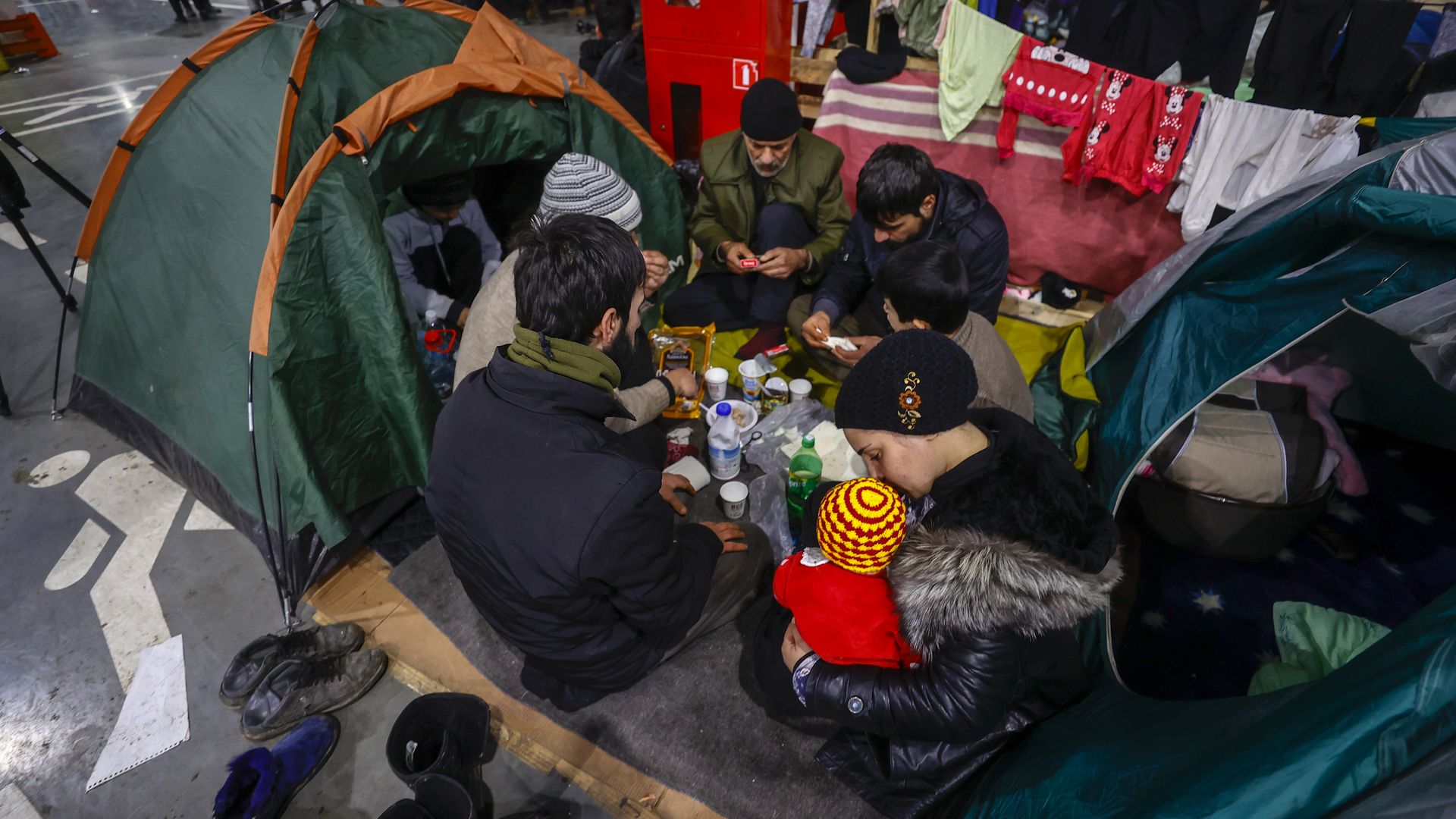Dec 1, 2021 - Politics & Policy
COVID-19 "radically altered mobility" globally, UN says
Add Axios as your preferred source to
see more of our stories on Google.

Migrants wait at a closed area allocated by Belarusian government the Belarusian-Polish border in Grodno, Belarus on December 1, 2021. Photo: Sefa Karacan/Anadolu Agency via Getty Images
